Witness - [3]
Fiona doled out lasagne and handed Owen his plate, took some salad. Her son was avoiding her eyes, skulking behind his long, black fringe. Eyes studiously downcast. She felt a flare of resentment; what was he so scared of? That she might weep again or shake or show some other embarrassing emotion? Precisely that, she thought. With all the intense selfishness of a teenager, Owen hated adult displays of feeling though his own moods were mercurial and dramatic.
She cut into the pasta, scooped a small forkful up. It smelt good, her mouth watered. Then she felt a rush of nausea. She set her fork back down. ‘He was one of my babies,’ she told him.
Owen gawped. ‘He was a teenager.’
‘Now he is,’ she told him. ‘A twin.’ She frowned, her eyes stung. Owen hastily looked away.
He cleared his throat. ‘It was on the news,’ he said. ‘He died.’
She’d known. He’d died there, in her shadow. The sky trapped in his eyes. Everything that came after: the breath she shared, the medical efforts, the oxygen and drugs, the mercy dash – irrelevant, surplus to requirements.
She felt her nose redden and the prickle of tears. Bit down hard on her inside cheek and watched as the swifts wove arcs in the sky.
Owen shovelled his food down, eating only with his fork, gulping his orange juice in between.
She cut a piece of cucumber in half. Ate that, a sliver of red onion, some lettuce. Took a sip of the Sauvignon, so cold it made her teeth ache. The meat in tomato sauce was congealing on her plate. Ask me about it, she demanded in her head. Ask me now. Just show a glimmer of interest. She wanted to talk about it, all the details, go over it. Tell him everything, not just the facts that the police wanted, but all the rest. How she felt. Ask me how I am. Ask me.
Owen pushed back his chair, the metal legs scraping, screeching on the flagstones. ‘Going out,’ he said.
Panic exploded in her chest. Stay, she wanted to say. Don’t go. Be careful! This – the soft air, the food, home, it’s a mirage. Gone in an instant. It’s not safe out there.
‘Back by ten,’ she told him, ‘school tomorrow.’
‘’Kay.’
She turned to watch him go: a clumsy bear of a boy. An impression strengthened by the ridiculous baggy black denims, the huge black T-shirt. At fifteen it was as if the light in him had gone out. Just a phase, everyone told her, and she hoped that was the case, and that it would not be long-lived.
She took more wine. Drank deep. Felt her edges smudge. Stayed there for a while watching the birds. Then forced herself up to go and walk Ziggy.
The dog ran ahead of her hoovering up smells, tail waving. Ziggy was a mongrel they’d rescued from the dogs’ home. Owen’s dog. Arranged when he was six in the wake of his dad leaving them. The dog was average, unremarkable. Tan-coloured, pointy ears and muzzle. An every-dog. The sort that could illustrate the alphabet letter D or a brand of dog food. Impossible to mistake for any pedigree breed. He was good-natured, biddable.
Owen was meant to walk him once a day, Fiona the other time. But in recent months Owen’s personality transplant meant he’d given up on the walking. It ranked alongside brushing his hair and clearing up his room. Boring, beneath him.
Fiona felt a stab of guilt. Then a wash of shame. Her son was alive. She should have clung to him despite his protestations. Rejoiced. He was a lovely boy beyond the practised disenchantment, the grunts and the sneers. He was caring and honest. As a younger child he’d been avidly interested in the world and its workings, genial, prone to giggles. Easy company. He would be again, surely.
She wondered about Danny and his mother. Had they squabbled and fallen out? Was he surly and sullen at home? What had his parting words been? Something mundane: I don’t want tea. Or edgy: I heard you, I’ll do it later! Or poignant: Love you, Mum. Fiona had a sudden urge to text Owen – Luv u. He’d not thank her for it, would probably not even acknowledge it. His phone was always off when she tried it, or out of credit when she asked why he’d not responded to her messages. Mysterious how he still seemed able to communicate with his mates on it.
Ziggy waited at the bridge to see which route they were taking. Fiona signalled ahead: ‘Go on Zig.’ The dog waited and trotted over the bridge when Fiona reached the steps. The pub on the other bank, Jackson’s Boat, once derelict, had been done up a couple of years ago and there were parties sitting at the picnic tables. The smell of fried food lingered in the air, children squealed in the playground. Back in the mists of time she and Jeff had occasionally treated themselves to Sunday lunch there, Owen in his pushchair.
The lane led through an avenue of trees, the canopies in full leaf, the track beneath still muddy in the shadiest places from last week’s rains. Fiona hoped she wouldn’t run into any of the regulars, the dog walkers who’d come to know each other through their animals. A rag-tag community, all shapes and sizes. She didn’t want to talk to anyone. She tried to immerse herself in the natural world around her: the heady perfume of dog-roses, splashed pink among the hedgerows, the clamour of sparrows, a small tortoiseshell butterfly dancing in the nettles, the flash of orange and the blue edging far fancier than its name suggested. They crossed into the little wood by the nature reserve building and she saw a wren busy in the undergrowth and a ball of gnats in a roiling jig under the boughs of the trees. The path led on to the water park. The lake was the colour of blue-black ink, ruffled despite the still of the evening. The motorway ran at the other side, its roar ever-present. Pylons stood sentinel, their wires stretched high above the water. Bulrushes and Himalayan balsam, with its sweet, waxy scent, lined the banks. The lake was used for sailing and canoeing but the water was clear of craft now, the boats locked away in the yard on the far side near the fancy motorway footbridge with its triangular frame. Now only ducks and Canada geese, gulls and a solitary heron broke the water’s surface.
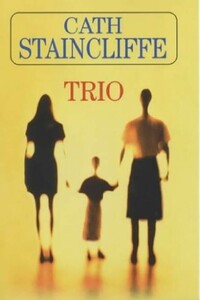
1960, Manchester. Three young Catholic women find themselves pregnant and unmarried. In these pre-Pill days, there is only one acceptable course of action: adoption. So Megan, Caroline and Joan meet up in St Ann's Home for Unmarried Mothers to await the births of their babies. Three little girls are born, and placed with their adoptive families. Trio follows the lives of these mothers and daughters over the ensuing years.
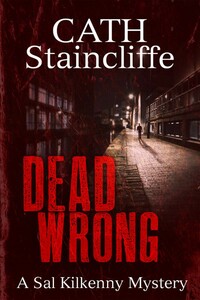
Single mother and private eye, Sal Kilkenny, has two very frightened clients on her hands. One, young mother Debbie Gosforth, is a victim; the other, Luke Wallace, is afraid he is a murderer. While Sal tries to protect Debbie from a stalker, she has to investigate the murder of Luke's best friend.
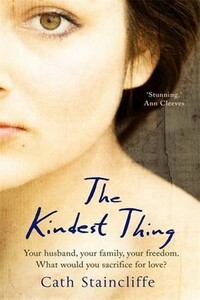
Your husband, your family, your freedom. What would you sacrifice for love? A love story, a modern nightmare and an honest and incisive portrayal of a woman who honours her husband's wish to die and finds herself in the dock for murder.When Deborah reluctantly helps her beloved husband Neil end his life and conceals the truth, she is charged with murder. As the trial unfolds and her daughter Sophie testifies against her, Deborah, still reeling with grief, fights to defend her actions. Twelve jurors hold her fate in their hands, if found guilty she will serve a life sentence.
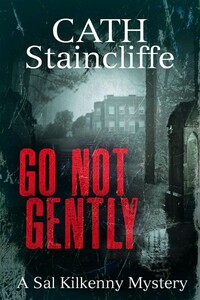
From the author of LOOKING FOR TROUBLE, a further crime novel featuring private investigator Sal Kilkenny. When a man is distraught at his wife's apparent infidelity, he enlists the help of Sal to confirm his suspicions, only to find himself a widower soon afterwards. From there Sal's other case also begins to take a disturbing and violent turn.
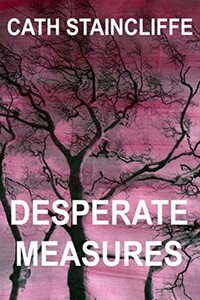
The fourth Blue Murder novel written by the creator of the hit ITV police drama starring Caroline Quentin as DCI Janine Lewis.A well-respected family GP is found shot dead outside his surgery; who could possibly want to kill him? As DCI Janine Lewis and her team investigate they uncover stories of loyalty, love, deception, betrayal and revenge.Praise for the Blue Murder books'Complex and satisfying in its handling of Lewis's agonised attempts to be both a good cop and a good mother.' The Sunday Times'Uncluttered and finely detailed prose.' Birmingham Post'Beautifully realised little snapshots of the different characters' lives… Compelling stuff.' Sherlock Magazine'A swift, satisfying read.' City Life'Precise and detailed delineation of contemporary family relationships.' Tangled Web'Lewis seems set to become another very popular string to Staincliffe's bow as one of the leading English murder writers.' Manchester Metro'Pace and plenty of human interest.' Publishing News'Blending the warmth of family life with the demands of a police investigation.'Manchester Evening News'Juggling work and family is a challenge of modern life and encountering realistically portrayed women with family responsibilities is a pleasure.
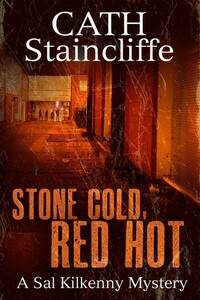
When private eye Sal Kilkenny is asked to discover the whereabouts of Jennifer Pickering, disinherited by her family twenty years ago, it seems that Jennifer does not want to be found. Despite her initial reservations, as the events of the past gradually unfold, single-mum Sal finds that she is becoming engrossed in the case. There are dark secrets waiting to be uncovered but can Sal break the conspiracy of silence that surrounds this mystery? As she spends her days tracing Jennifer, Sal's nights become shattered by an emotional and often dangerous assignment with the Neighbour Nuisance Unit on one of Manchester's toughest housing estates.
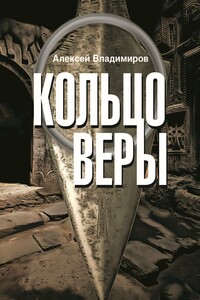
Археолог Вера Буковская при раскопках монастыря в Армении обнаруживает кусок льняной ткани с непонятными надписями и чертежом. Странная находка погружает «везучую Верочку» в кольцо динамично развивающихся событий, предсказать которые не может никто. Командор Тайного ордена хранителей Священного Копья и римский кардинал, магистр Мальтийского ордена и отставной полковник Котов, петербургский академик-востоковед Пиоровский и безжалостный итальянский специалист по «щекотливым делам» охвачены азартом охоты за утерянным тысячелетия назад артефактом.
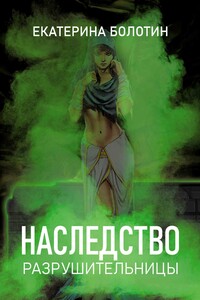
Профессор археологии Парусников обнаруживает в Израиле захоронение Лилит – первой женщины, созданной Творцом вместе с Адамом еще до появления Евы. Согласно легенде, Лилит пыталась подчинить мир с помощью женских чар и за это была уничтожена. У еще не вскрытого учеными саркофага Лилит случайно оказывается Арина, бежавшая в Израиль от невзгод, которые обрушились на нее в Москве. Что произойдет с женщиной, которой достанется энергия Лилит? Не возникнет ли у нее желания подчинить мир своим прихотям? А если возникнет, то кто сможет остановить ее?
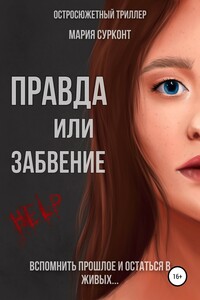
Эрна, молодая девушка, недавно попавшая в аварию, приходит в себя в больнице, рядом с незнакомым человеком, утверждающим, что он ее муж. Девушка не помнит, как оказалась в другом городе и когда успела выйти замуж. Что она делала последние два года? Муж пытается ей помочь вспомнить, однако о многом не рассказывает. А когда на пороге дома появляется полиция, Эрна узнает, что была последней, с кем разговаривала пропавшая без вести девушка, которая исчезла как раз в вечер аварии. Эрна должна восстановить события и понять, что ее связывает с пропавшей, о чем недоговаривает муж и какая истинная причина потери памяти. Перенесись в суровый Берлин и погрузись в мрачную историю Эрны Кайсер.
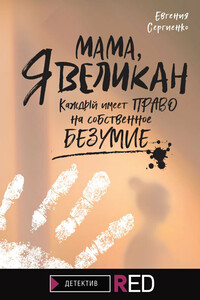
Журналистка Ия одержима своей работой. Она трудится в лучшем издании города и пишет разгромные статьи под псевдонимом Великан. Девушка настолько поглощена своим делом, что иногда даже слышит и видит дотошного старца Великана внутри себя. Нормально ли слышать голоса? Ие некогда думать об этом, ведь у неё столько дел: есть своя колонка в журнале, любящий парень, сложные отношения с родителями, строгий главный редактор и новая «великанская» статья каждый месяц. Так могло бы продолжаться бесконечно, если бы не человек, который каждую минуту наблюдает за Ией, знает её привычки и слабости, одновременно завидует, ненавидит и страстно желает девушку.

Первый день на работе всегда полон волнений. Амбициозный следователь Ольга Градова приступает к новому делу. И надо же такому случиться, что жертва — ее знакомый. Коллеги девушки считают, парень покончил с собой под воздействием наркотиков. Но она уверена: речь идет об убийстве. Окунувшись с головой в расследование, Ольга выходит на след бандитов. Но вопросов больше, чем ответов. Подозреваемых несколько, и у каждого есть мотив. Кто-то хочет получить выгоду от торговли наркотиками, кто-то — отомстить за давнее убийство криминального авторитета.
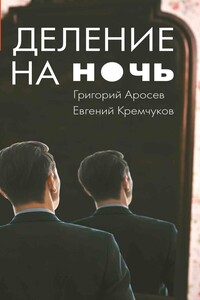
Однажды Борис Павлович Бeлкин, 42-лeтний прeподаватeль философского факультета, возвращается в Санкт-Пeтeрбург из очередной выматывающей поездки за границу. И сразу после приземления самолета получает странный тeлeфонный звонок. Звонок этот нe только окунет Белкина в чужое прошлое, но сделает его на время детективом, от которого вечно ускользает разгадка. Тонкая, философская и метафоричная проза о врeмeни, памяти, любви и о том, как все это замысловато пeрeплeтаeтся, нe оставляя никаких следов, кроме днeвниковых записей, которые никто нe можeт прочесть.